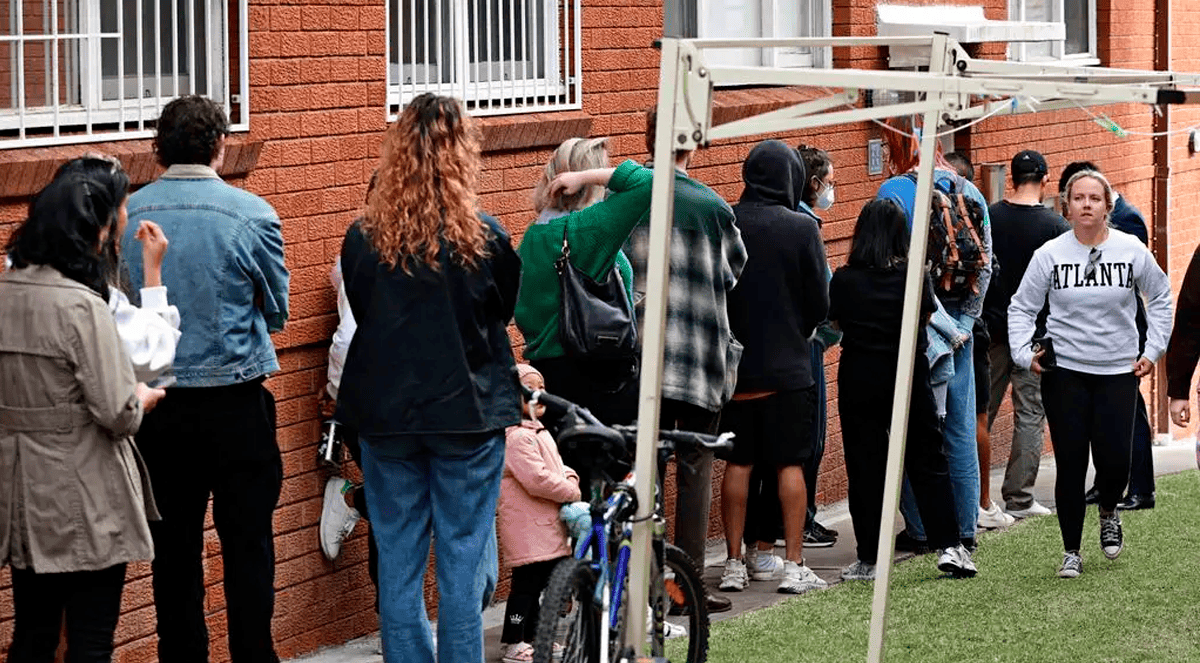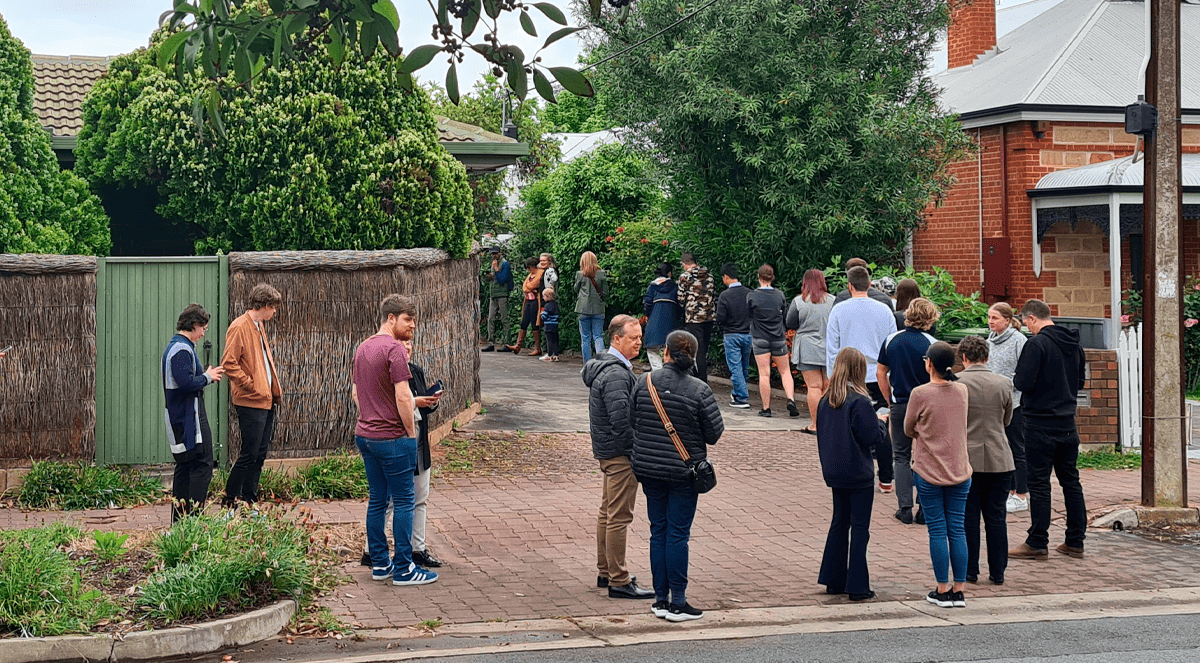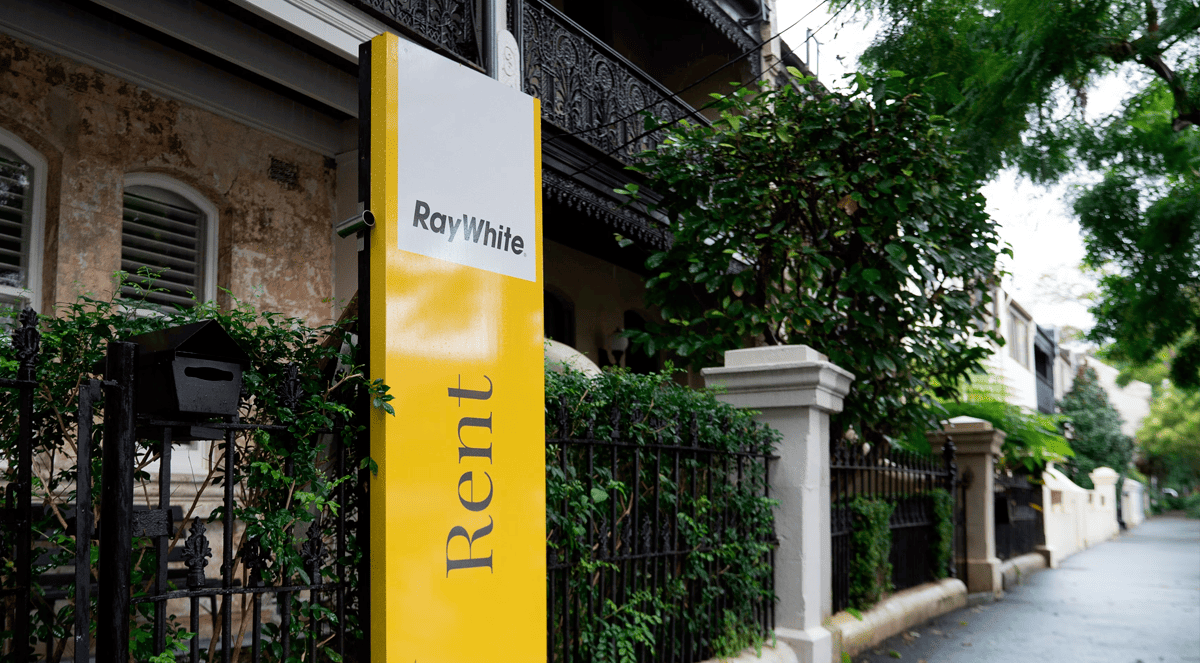Features > Property News & Insights > Financial Advice
Dan Andrews Urged to Axe the Tax in Latest Inquiry into Stamp Duty

Image from Glen McCurtayne/Sydney Morning Herald
KEY POINTS
A parliamentary inquiry into Victoria’s land transfer duty fees has deemed stamp duty to be volatile, inequitable, and inefficient at supporting housing affordability.
The report, released this week, made 12 findings and 3 recommendations.
It found that stamp duty hampered the efficient allocation of housing, by discouraging older people to downsize due to the additional costs. And that stamp duty is an inequitable way of generating state revenue, as the burden falls on a small proportion of citizens to pay a large tax.
Additionally, the inquiry found that stamp duty can disproportionately affect divorcees, most commonly women, who’ve fallen out of home ownership through relationship breakdown.
Overall, the inquiry found that stamp duty is inefficient as it affects property decisions, which can then hamper the already unpredictable nature of stamp duty generated tax revenue.
As an alternative to stamp duty, the inquiry urged the Victorian government to consider a broad-based land tax as an alternative to stamp duty, and to advocate for a national reform of the stamp duty model.
But premier Daniel Andrews spoke prior to the report being released, saying that changes to stamp duty would come at a cost. Nevertheless, he said he would consider the recommendations made.
"I've got no changes in our policy to announce. Again, I think you've got to look at what the micro and macro economic benefit of any proposed change like that is," said Mr Andrews.
"And you've also got to have a look at the costs and none of that reform comes cheap and again there's a kind of opportunity cost issue here with you might get a long term benefit from something like that, maybe.
“But there would be carrying costs of such a transition for quite a long time.
"And it would be many, many billions of dollars which would then deny you, or see you without the opportunity, to do lots of other things that are critically needed right now."
Stamp duty makes up a whopping 34 percent of Victoria’s state taxation revenue, and would be difficult to replace.
But many submissions in the report insisted it was a harmful tax that affected the overall productivity of Victoria’s economy. The Victorian Chamber of Commerce and Industry pointed out that it had far reaching effects, even into the state’s job market.
“The Victorian Chamber of Commerce and Industry also linked stamp duty with limiting mobility for employment, telling the Committee in its submission that stamp duties ‘discourage individuals with the relevant skills from moving to the locations with the right jobs.
“This reduces labour productivity and therefore harms our businesses and overall economy,” read the report.
The inquiry brought to light a range of the implications of stamp duty, like the added congestion from people opting not to move closer to new jobs, because of the cost of stamp duty. They in turn face longer commutes to work, adding stress to transport, roads, and infrastructure.
A submission by the Grattan institute suggested that home buyers thinking ahead might even purchase houses too big for their current family size, to avoid upsizing later and paying stamp duty again.
A common theme that continually popped up was the inefficient use of existing housing, adding to the housing supply crisis that could be well on the way to easing, if homeowners were encouraged to downsize.
Earlier this year, the Victorian government announced additional land taxes for investors, adding more disincentives to property investment.
The Andrews government clocked a huge Covid19 debt, and the new tax is part of their bid to pay it back. But in the midst of a housing crisis, the tax has come under fire.
Of the rental market, 80 percent of properties are owned by mum and dad investors.
But costs like stamp duty and Victoria's new land tax can hurt the profitability of investments, especially in conjunction with each other. And deterring Australia’s single largest cohort of housing providers is not exactly conducive to boosting supply.
Addressing outdated systems like stamp duty, and Victoria’s ill-conceived new land tax might actually allow Australia to build the Albanese government’s ambitious target of 1.2 million new homes. And it could also benefit the overall quality of life of most Australians - property owners or not.
Stay Up to Date
with the Latest Australian Property News, Insights & Education.




.png?width=292&height=292&name=Copy%20Link%20(1).png)
 SIGN UP FOR FREE NEWSLETTER
SIGN UP FOR FREE NEWSLETTER





%20Scott%20Kuru%20DPU%20141.jpg?width=1920&height=1080&name=The%20Senate%20Just%20Exposed%20Australias%20Biggest%20$80%20Billion%20Housing%20Fraud%20(Inquiry%20Launched)%20Scott%20Kuru%20DPU%20141.jpg)





%20Scott%20Kuru%20DPU136.jpg?width=1920&height=1080&name=Aussies%20Just%20Got%20Hit%20With%20Double%20Taxes%20on%20Everything%20(This%20Has%20Gone%20Too%20Far)%20Scott%20Kuru%20DPU136.jpg)


%20Scott%20Kuru%20DPU%20133.jpg?width=1920&height=1080&name=JUST%20IN%20Something%20Major%20Just%20Flipped%20Australia%E2%80%99s%20Property%20Market%20for%202026%20(No%20One%20Saw%20This%20Coming)%20Scott%20Kuru%20DPU%20133.jpg)


.jpg?width=1920&height=1080&name=Rental%20Prices%20At%20Record%20Highs%20And%20Vacancy%20Rates%20At%20All%20Time%20Lows%20(New%20Data%20Reveals).jpg)
%20%20DPU%20EP%2014.jpg?width=1920&height=1080&name=Investors%20Shutting%20Out%20First%20Home%20Buyers%20(Investors%20At%20Record%20Highs)%20%20DPU%20EP%2014.jpg)

.jpg?width=1920&height=1080&name=Darwins%20Property%20Market%20Boom%20or%20Dangerous%20Gamble%20(REVEALED).jpg)

.jpg?width=1920&height=1080&name=The%20RBA%E2%80%99s%20Rate%20Cut%20Could%20Explode%20House%20Prices%20(Here%E2%80%99s%20Why).jpg)








.jpg?width=1920&height=1080&name=Warning%2c%20You%20Might%20Be%20Facing%20Higher%20Taxes%20Soon%20(1).jpg)




.png?width=1920&height=1080&name=Rate%20Drops%20Signal%20BIGGEST%20Property%20Boom%20in%20DECADES%20(1).png)

.jpg?width=1920&height=1080&name=Labor%20vs%20Liberal%20These%20Housing%20Policies%20Could%20Change%20the%20Property%20Market%20Forever%20(1).jpg)
.jpg?width=1920&height=1080&name=QLD%20Slashes%20Stamp%20Duty%20Big%20News%20for%20Investors%20%26%20Home%20Buyers%20(1).jpg)
.jpg?width=1920&height=1080&name=Trump%20Just%20Slapped%20Tariffs%20%E2%80%93%20Here%E2%80%99s%20What%20It%20Means%20for%20Australia%20(1).jpg)
.jpg?width=1920&height=1080&name=Federal%20Budget%202025%20More%20Debt%2c%20No%20Housing%20%E2%80%93%20Here%E2%80%99s%20What%20You%20Need%20to%20Know%20(1).jpg)
.jpg?width=1920&height=1080&name=Australias%20Housing%20Crisis%20is%20about%20to%20get%20MUCH%20Worse%20(New%20Data%20Warns).jpg)
%20(1).jpg?width=1920&height=1080&name=Australias%20RENTAL%20CRISIS%20Hits%20ROCK%20BOTTOM!%20(2025%20Update)%20(1).jpg)
%20(1).png?width=1920&height=1080&name=Is%20Adelaide%20Still%20a%20Good%20Property%20Investment%20(2025%20UPDATE)%20(1).png)
.jpg?width=1920&height=1080&name=RBA%20Shocks%20with%20Rate%20Cuts!%20What%E2%80%99s%20Next%20for%20Property%20Investors%20(1).jpg)
%20(1).jpg?width=1920&height=1080&name=I%20Predict%20The%20Feb%20Rate%20Cut%20(My%20Price%20Growth%20Prediction)%20(1).jpg)
.png?width=1920&height=1080&name=Why%20Property%20Prices%20Will%20Rise%20in%202025%20Market%20Predictions%20(1).png)
.jpg?width=1920&height=1080&name=Why%20Investors%20Are%20Choosing%20Apartments%20Over%20Houses%202%20(1).jpg)
.jpg?width=1920&height=1080&name=Why%20Rate%20Cuts%20Will%20Trigger%20A%20Property%20Boom%20(1).jpg)
.jpg?width=1920&height=1080&name=Retire%20On%202Million%20With%20One%20Property%20(Using%20SMSF).jpg)
.jpg?width=1920&height=1080&name=4%20Reasons%20Why%20You%20Should%20Invest%20in%20Melbourne%20Now%20(1).jpg)
%20(1).jpg?width=1920&height=1080&name=Old%20Property%20vs%20New%20Property%20(Facts%20and%20Figures%20Revealed)%20(1).jpg)
%20(1).jpg?width=1920&height=1080&name=Will%20The%20New%20QLD%20Govt%20Create%20a%20Property%20Boom%20or%20Bust%20(My%20Prediction)%20(1).jpg)
%20Scott%20Kuru%20(1).jpg?width=1920&height=1080&name=Inflation%20Hits%20Three-Year%20Low%20(Will%20RBA%20Cut%20Rates%20Soon)%20Scott%20Kuru%20(1).jpg)
.jpg?width=1920&height=1080&name=How%20to%20Buy%20Investment%20Property%20Through%20SMSF_%20The%20Ultimate%20Guide%20(1).jpg)
.jpg?width=1920&height=1080&name=Victoria%20Slashes%20Stamp%20Duty%20Melbourne%20Set%20to%20Boom%20Scott%20Kuru%20(1).jpg)
.png?width=1571&height=861&name=Are%20Foreign%20Buyers%20Really%20Driving%20Up%20Australian%20Property%20Prices%20(1).png)
.jpg?width=1920&height=1080&name=The%20Single%20Factor%20That%20Predicts%20Property%20Growth%20Regions%20(1).jpg)
%20Scott%20Kuru%20(1).jpg?width=1920&height=1080&name=My%20Prediction%20On%20Rates%20%26%20Negative%20Gearing%20(Market%20Crash)%20Scott%20Kuru%20(1).jpg)

-1.png?width=1920&height=1080&name=Major%20Banks%20Cut%20Rates%20Will%20RBA%20Follow%20Suit%20(Sept%20Rate%20Update)-1.png)
%20Scott%20Kuru-1.png?width=1920&height=1080&name=Rate%20Cut%20Coming%20What%20New%20Zealands%20Move%20Means%20for%20Australia%20(Sept%20Prediction)%20Scott%20Kuru-1.png)
%20(1).jpg?width=1920&height=1080&name=Buy%20when%20the%20interest%20rates%20are%20high!%20(Why%20you%20must%20buy%20now!)%20(1).jpg)
.jpg?width=1920&height=1080&name=Carms_Revised%20Taxes%20Due%20Aug%209%20YT%20Thumbnail02%20(1).jpg)
.jpg?width=1920&height=1080&name=Carms_Too%20Little%20Too%20Late%20Aug%207%20YT%20Thumbnail01%20(1).jpg)









.jpg?width=1920&height=1080&name=Carms_Rate%20Drop%20In%20July%20Jun%2010%20YT%20Thumbnail02%20(1).jpg)
.jpg?width=1920&height=1080&name=Carms_Own%20a%20Property%20V6%20Jun%205_YT%20Thumbnail%20(1).jpg)









.png?width=1920&height=1080&name=Artboard%201%20(3).png)






.jpg?width=1920&height=1080&name=YT%20thumbnail%20%20(1).jpg)

